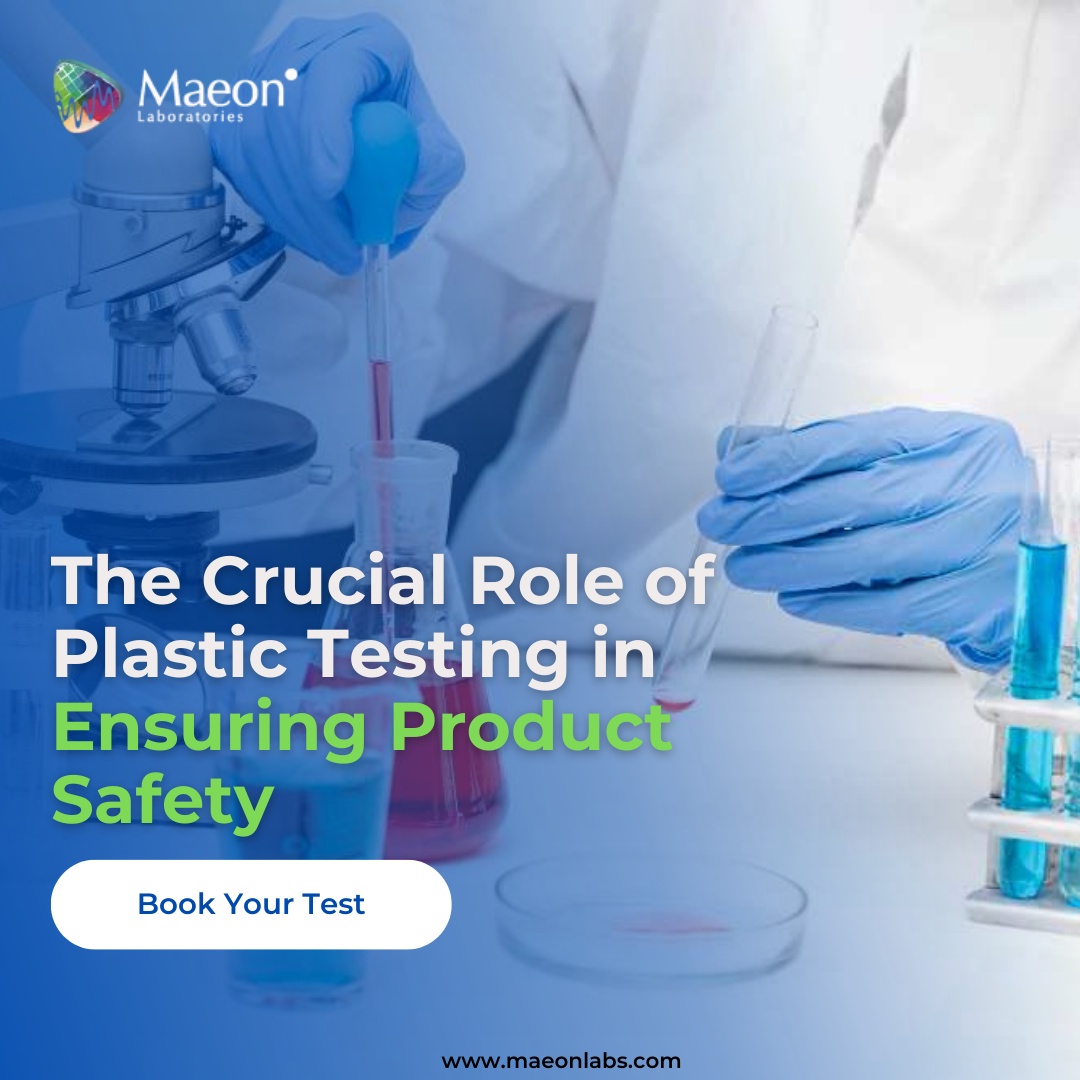Table of Content
- Understanding Plastic Testing
- Importance of Plastic Testing
- Types of Plastic Testing
- Standards and Regulations
- Process of Plastic Testing
- Equipment Used in Plastic Testing
- Role of Plastic Testing Labs in India
- Challenges in Plastic Testing
- Future of Plastic Testing
- Conclusion
- FAQs
At Maeon Laboratory, we understand the critical importance of ensuring the safety and quality of plastic products. In today's world, where plastic has become an integral part of our daily lives, it is essential to conduct thorough testing to safeguard consumers and promote confidence in the use of plastic materials.
Understanding Plastic Testing
Plastic testing involves a series of evaluations and experiments conducted on plastic materials to assess their quality, durability, and safety. These tests are crucial in identifying any potential hazards associated with the use of plastic products.
Importance of Plastic Testing
The significance of plastic testing cannot be overstated. It ensures that the products we use meet the required safety standards, protecting consumers from potential harm. Moreover, it helps manufacturers identify any defects or weaknesses in their products, allowing them to make necessary improvements.
Types of Plastic Testing
There are various types of tests conducted on plastic materials, including mechanical testing, chemical testing, thermal testing, and electrical testing. Each type serves a specific purpose in evaluating different aspects of plastic performance and safety.
Standards and Regulations
Plastic testing is governed by a set of standards and regulations enforced by regulatory bodies such as the Bureau of Indian Standards (BIS) and international organizations like ASTM International and ISO. These standards ensure consistency and reliability in testing procedures.
Process of Plastic Testing
The process of plastic testing involves several steps, including sample preparation, testing parameter selection, data collection, and analysis. Each step is meticulously carried out to obtain accurate and reliable results.
Equipment Used in Plastic Testing
Various specialized equipment is used in plastic testing, such as universal testing machines, spectrophotometers, rheometers, and Fourier transform infrared (FTIR) spectrometers. These instruments help in conducting precise measurements and analyses.
Role of Plastic Testing Labs in India
Plastic testing labs in India play a crucial role in ensuring the safety and quality of plastic products. They conduct comprehensive testing procedures to certify products for compliance with regulatory standards, thereby safeguarding public health and consumer interests.
Challenges in Plastic Testing
Despite its importance, plastic testing faces several challenges, including the complexity of plastic materials, the need for advanced testing techniques, and the lack of standardized testing protocols in certain areas.
Future of Plastic Testing
With advancements in technology and increasing awareness of environmental concerns, the future of plastic testing looks promising. Innovations in testing methods and equipment are expected to enhance the accuracy and efficiency of plastic testing processes.
Conclusion
In conclusion, plastic testing plays a crucial role in ensuring the safety and quality of plastic products. By conducting thorough evaluations and adhering to regulatory standards, plastic testing helps protect consumers and promote confidence in the use of plastic materials.
FAQs
- What is plastic testing, and why is it important?
Plastic testing involves evaluating the quality, safety, and performance of plastic materials to ensure they meet regulatory standards. It is essential for safeguarding consumer health and promoting product reliability.
- How are plastic products tested for safety?
Plastic products undergo various tests, including mechanical, chemical, thermal, and electrical testing, to assess their safety and durability. These tests help identify any potential hazards associated with the use of plastic materials.
- What role do plastic testing labs play in India?
Plastic testing labs in India are responsible for conducting comprehensive testing procedures to certify products for compliance with regulatory standards. They play a crucial role in ensuring the safety and quality of plastic products available in the market.
- What are the challenges faced in plastic testing?
Challenges in plastic testing include the complexity of plastic materials, the need for advanced testing techniques, and the lack of standardized testing protocols in certain areas. Overcoming these challenges requires continuous innovation and collaboration within the industry.
- What does the future hold for plastic testing?
With advancements in technology and growing awareness of environmental issues, the future of plastic testing looks promising. Innovations in testing methods and equipment are expected to enhance the accuracy and efficiency of plastic testing processes, ensuring safer and more reliable plastic products for consumers.


No comments yet